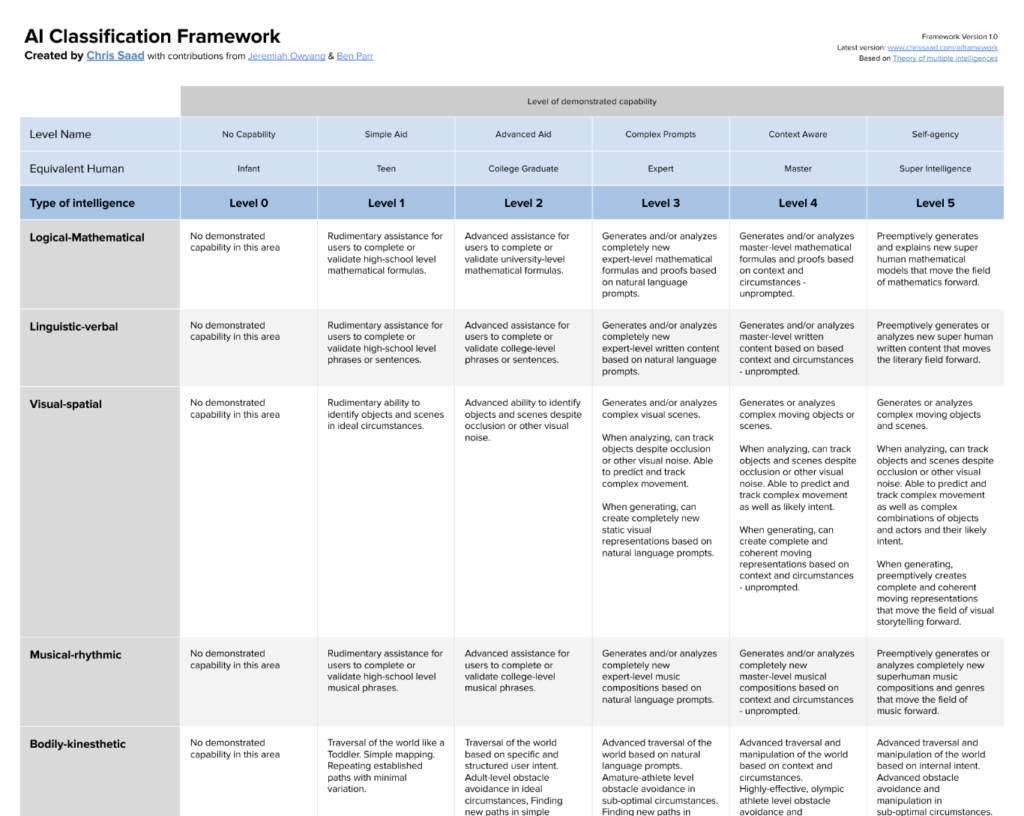I collaborated with Chris Saad and Ben Parr on this AI Classification Framework which helps identify the roadmap as AI becomes “Super human” —read the announcement on Techcrunch.


(Advance to view full framework)
To address these limitations, there is an urgent and critical need to develop a more nuanced and comprehensive framework for evaluating AI capabilities across multiple dimensions of intelligence.
The “AI Classification Framework.” (or ACF for short) is a new approach to evaluating AI capabilities based on the Theory of Multiple Intelligences. Chris Saad pens:
“The Theory of Multiple Intelligences was first proposed by psychologist Howard Gardner in 1983. Gardner argued that intelligence was not a single, unified entity but rather a collection of different abilities that could manifest in a variety of ways. Gardner identified eight different types of intelligence: According to Gardner, individuals may excel in one or more of these areas, and each type of intelligence is independent of the others. The theory challenged the traditional view of intelligence as a singular, fixed entity and opened up new avenues for exploring the diversity of human cognition. While the theory of multiple intelligences has been subject to some criticism and debate over the years, it has had a significant impact on the field of psychology and education, particularly in the development of alternative approaches to teaching and learning.”
This seemed like a strong basis for the AI Classification Framework, using the theory the framework supports how AI is expanding in a few disciplines including:
- Intelligence including linguistic
- logical-mathematical
- musical
- spatial
- bodily-kinesthetic
- interpersonal
- intrapersonal intelligence.
For each dimension of intelligence, the framework provides a scale from 1–5 with 1 being “No Capability” or the equivalent of a human infant and 5 being “Self-agency” or capability that might be considered “Super Intelligence” — beyond human ability.
Read the full framework, which you could and should apply to your industry and business.